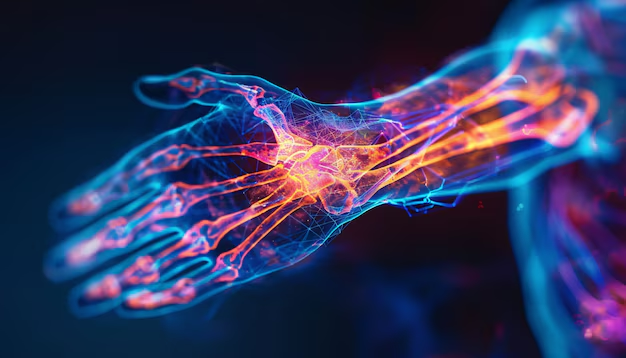Neuropathic Pain Syndrome: Causes, Symptoms, and Treatment
Neuropathic pain syndrome, also known as nerve pain, is a chronic pain condition caused by damage or dysfunction of the nervous system. The condition can be challenging to diagnose and treat, and it can have a significant impact on an individual’s quality of life. Pain management hospitals have extensive experience in treating neuropathic pain syndrome, and this article will provide an overview of the causes, symptoms, and treatment of this condition.


Causes of Neuropathic Pain Syndrome
Neuropathic pain syndrome can be caused by a variety of factors, including:Injury: Physical injuries such as spinal cord injury, amputation, or surgery can damage nerves and lead to neuropathic pain. Diseases: Certain diseases such as diabetes, shingles, multiple sclerosis, and HIV can damage nerves and cause neuropathic pain. Toxins: Exposure to toxins such as heavy metals or chemotherapy drugs can damage nerves and lead to neuropathic pain. Genetics: In some cases, genetic factors can lead to neuropathic pain.

Symptoms of Neuropathic Pain Syndrome
Neuropathic pain syndrome is characterized by pain that is often described as burning, shooting, or stabbing. The pain can be continuous or come and go, and it can be severe or mild. Other symptoms of neuropathic pain syndrome include:
- Numbness or tingling in the affected area.
- Increased sensitivity to touch.
- Muscle weakness.
- Loss of coordination.
- Difficulty sleeping.
- Depression and anxiety.

Treatment of Neuropathic Pain Syndrome
The treatment of neuropathic pain syndrome can be challenging, as the condition is often resistant to traditional pain medications such as nonsteroidal anti-inflammatory drugs (NSAIDs) and opioids. Pain management hospitals use a variety of techniques to treat neuropathic pain, including:
- Medications: Medications such as antidepressants, anticonvulsants, and topical anesthetics can be used to treat neuropathic pain. These medications work by blocking or altering the signals between damaged nerves and the brain.
- Nerve Blocks: Nerve blocks involve injecting a local anesthetic and a steroid directly into the affected nerve. This can provide temporary relief of pain by blocking the pain signals from the nerve.
- Spinal Cord Stimulation: Spinal cord stimulation involves implanting a small device under the skin that sends electrical impulses to the spinal cord. This can help to block the pain signals from the affected area and provide long-term relief of pain.
- Physical Therapy: Physical therapy can help to improve muscle strength, flexibility, and coordination, which can help to reduce pain and improve function.
- Psychological Therapy: Psychological therapy such as cognitive-behavioral therapy can be helpful in managing the psychological effects of neuropathic pain, such as depression and anxiety.

Conclusion
Neuropathic pain syndrome is a challenging and complex pain condition that can significantly impact an individual’s quality of life. Pain management hospitals have extensive experience in treating neuropathic pain and use a variety of techniques to provide relief of pain and improve function. If you are experiencing neuropathic pain, it is essential to seek the advice of a pain management specialist who can help to diagnose the condition and develop an effective treatment plan.

Why Choose Pain Free Odisha for Myofascial Pain Syndrome Treatment?
Expert Pain Specialist
Dr. Shovan Kumar Rath has extensive experience in managing shoulder conditions.
Non-Surgical Solutions
Focused on minimally invasive procedures for faster recovery.
Personalized Care
Each treatment plan is tailored to the patient’s condition and lifestyle.
State-of-the-Art Technology
Using modern tools for accurate diagnosis and treatment.
Holistic Approach
Combining medical treatments with physiotherapy for long-term relief.
Book an Appointment
If you’re struggling with chronic muscle pain, don’t wait for it to worsen. Consult Dr. Shovan Kumar Raht at Pain Free Odisha today and get expert treatment tailored to your needs.
📍 Location: Pain Free Odisha, [City, Address]
📞 Contact: [Phone Number]
🌐 Website: [Hospital Website URL]
Take the first step towards a pain-free life!
